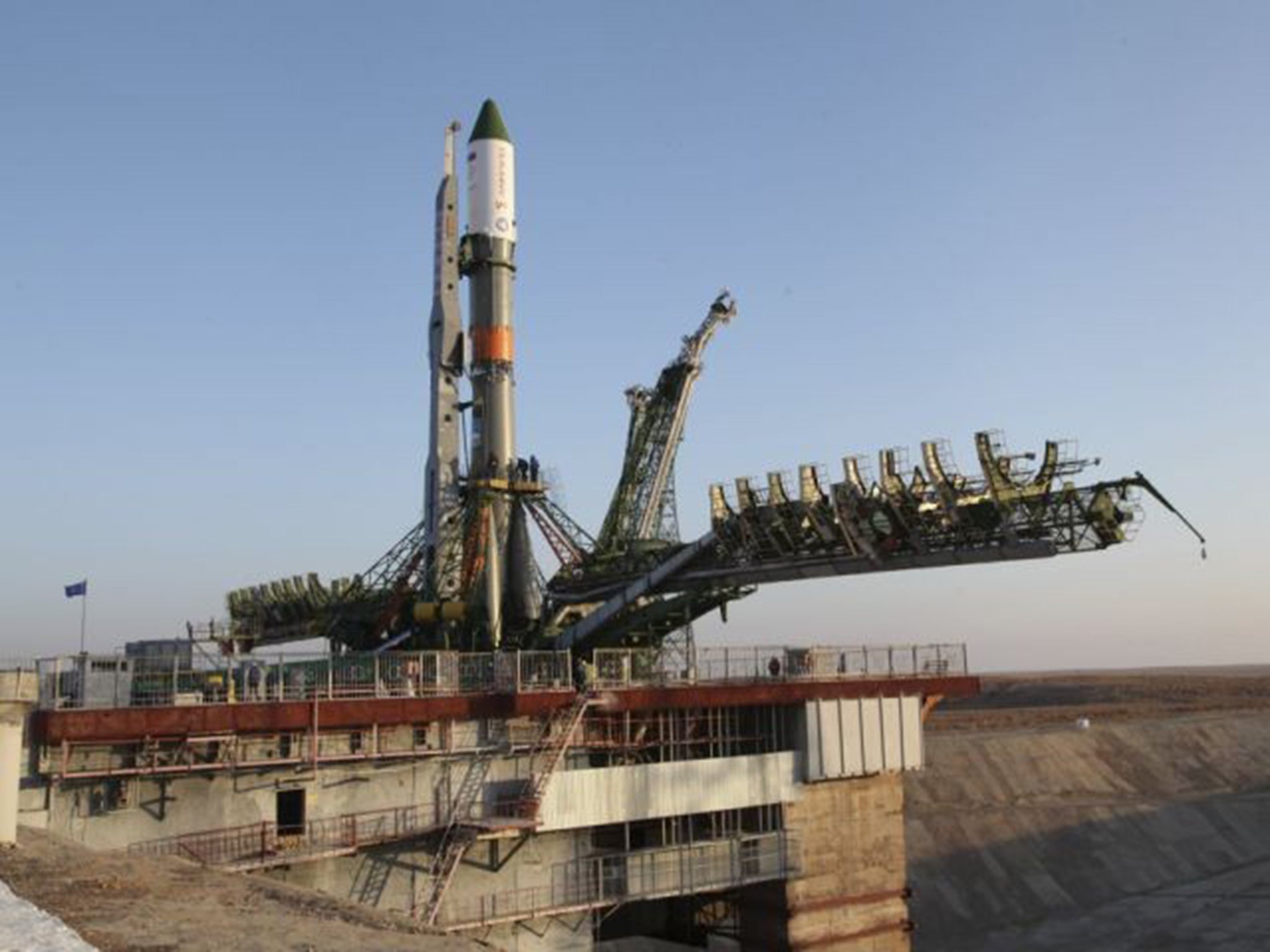Russian rocket carrying supplies to International Space Station blows up moments after lift-off
Soyuz rocket was carrying two and a half tonnes of food and supplies when it blasted off from the Baikonur Cosmodrome in Kazakhstan

Your support helps us to tell the story
From reproductive rights to climate change to Big Tech, The Independent is on the ground when the story is developing. Whether it's investigating the financials of Elon Musk's pro-Trump PAC or producing our latest documentary, 'The A Word', which shines a light on the American women fighting for reproductive rights, we know how important it is to parse out the facts from the messaging.
At such a critical moment in US history, we need reporters on the ground. Your donation allows us to keep sending journalists to speak to both sides of the story.
The Independent is trusted by Americans across the entire political spectrum. And unlike many other quality news outlets, we choose not to lock Americans out of our reporting and analysis with paywalls. We believe quality journalism should be available to everyone, paid for by those who can afford it.
Your support makes all the difference.An unmanned Russian cargo ship loaded with supplies for the International Space Station broke apart about six minutes after lift-off.
The Soyuz rocket, carrying a Progress capsule containing two and a half tonnes of food and supplies, blasted off from the Baikonur Cosmodrome in Kazakhstan just before 10am local time on Thursday.
But the ground control teams soon lost radio contact with the rocket, Russian space agency Roscosmos said in a statement.
The capsule was last confirmed flying at an altitude of about 190km (118 miles) over an unpopulated region of the Republic of Tyva on Thursday.
The cause of the accident is currently under investigation but Nasa said the six-member crew aboard the ISS is not in any danger and has enough supplies for several months.
But the launch was the fourth failed attempt to send supplies to the ISS in the past two years, including one previous Progress failure.
The accident comes at a critical time because SpaceX, one of two U.S. companies flying supplies to the station for NASA, has not yet returned to flight following a 1 September launch pad accident.
SpaceX is awaiting approval from the Federal Aviation Administration, which oversees U.S. commercial space transportation, to fly as early as Dec. 16 with 10 satellites owned by Iridium Communications Inc.
SpaceX's next cargo flight for NASA is targeted for January. Orbital ATK and Japan's space agency also fly supplies to the station, a $100 billion (£79 billion) laboratory that flies about 418 km (250 miles) above Earth.
A Japanese cargo ship is scheduled for launch on 9 December.
Additional reporting by agencies
Join our commenting forum
Join thought-provoking conversations, follow other Independent readers and see their replies
Comments